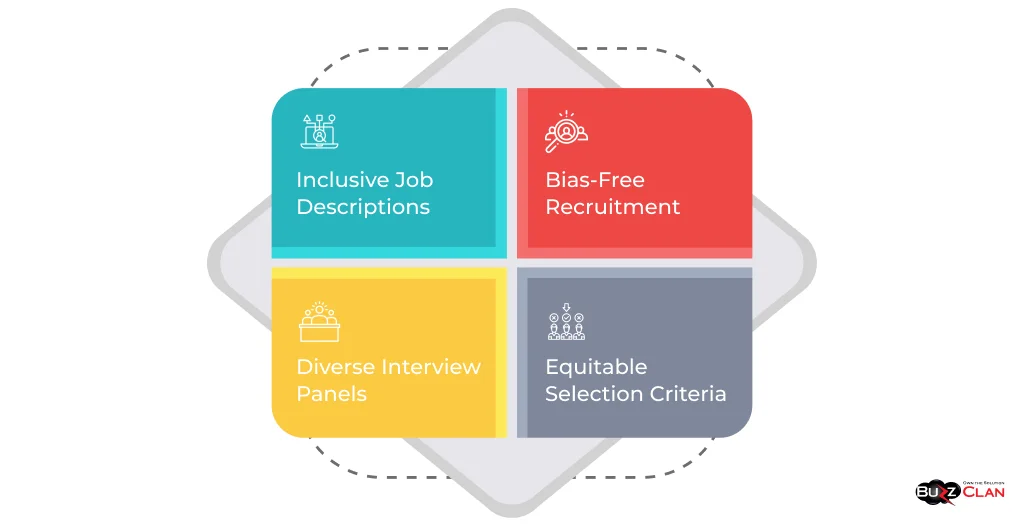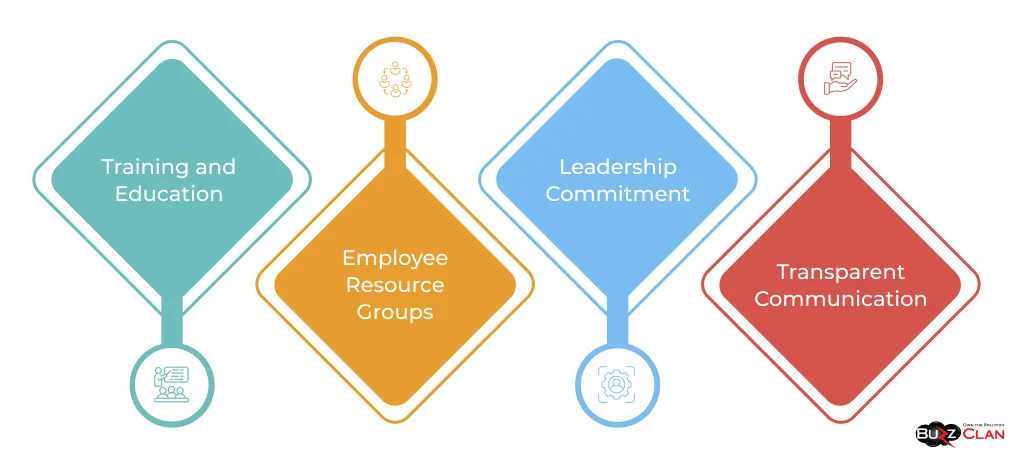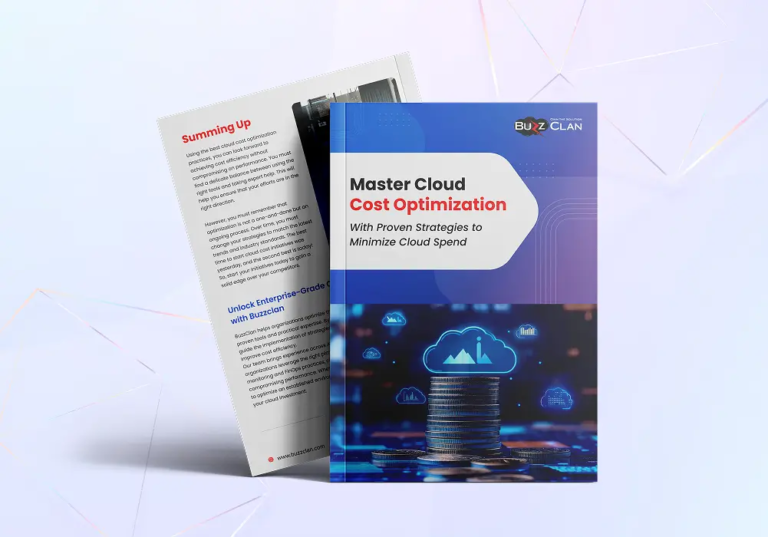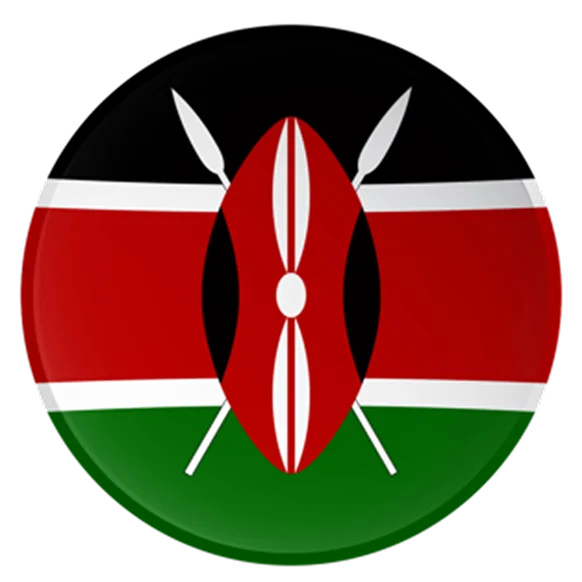The Ultimate Guide to DEI Hiring: Strategies, Best Practices, and Examples
Nidhi Rani
Jun 17, 2024
Introduction
Diversity, Equity, and Inclusion (DEI) have become crucial components of modern hiring practices in today’s diverse and globalized world. Companies that prioritize DEI foster a more inclusive and equitable workplace and reap significant business benefits, such as increased innovation, better decision-making, and improved employee engagement. As organizations strive to build diverse and inclusive teams, understanding and implementing effective DEI hiring practices has become more important.
This comprehensive blog post will explore DEI hiring’s meaning, importance, and best practices. We will discuss the various strategies and techniques organizations can employ to attract and hire diverse talent, such as creating inclusive job descriptions, ensuring bias-free recruitment, and establishing equitable selection criteria. Additionally, we will showcase examples of DEI hiring practices from notable companies like Boeing and United Airlines and provide an overview of the FAA’s DEI hiring policy.
Throughout this blog, we will also delve into the process of developing and implementing effective DEI hiring policies, identify common challenges organizations face, and offer solutions to overcome them. We will explore the importance of measuring the impact of DEI hiring practices and discuss best practices for fostering a truly inclusive and equitable workplace culture.
By the end of this post, you will have a solid understanding of DEI hiring and be well-equipped to implement or enhance DEI initiatives within your organization. Whether you are an HR professional, a hiring manager, or a business leader, this guide will provide valuable insights and practical strategies to drive positive change and build a more diverse and inclusive workforce.
What is DEI Hiring?
DEI hiring refers to actively seeking and hiring candidates from diverse backgrounds, ensuring equal opportunities for all, and creating an inclusive workplace environment. It involves implementing strategies and policies that promote diversity across various dimensions, such as race, ethnicity, gender, sexual orientation, age, ability, and socioeconomic status.
The primary goal of DEI hiring is to build a workforce that reflects the diversity of an organization’s communities and customers. By embracing DEI in hiring practices, companies can tap into a wider talent pool, bring fresh perspectives and ideas, and foster a culture of inclusivity and belonging.
Importance of DEI in Hiring
Implementing DEI in hiring practices offers numerous benefits to organizations, both from a business and social responsibility standpoint.
Business Benefits:
- Improved innovation and problem-solving: Diverse teams bring various perspectives and experiences, leading to more creative solutions and better decision-making.
- Enhanced employee engagement and retention: When employees feel valued and included, they are more likely to be engaged, productive, and loyal to their organization.
- Increased market share and customer loyalty: Companies that reflect the diversity of their customer base are better positioned to understand and serve their needs, leading to increased market share and customer loyalty.
- Stronger financial performance: Studies have shown that companies with diverse leadership teams and inclusive cultures tend to outperform their less diverse counterparts financially.
Social Responsibility:
- Promoting equal opportunities: DEI hiring practices help level the playing field and provide equal opportunities for all candidates, regardless of their background or identity.
- Addressing systemic inequalities: By actively seeking and hiring diverse candidates, organizations can help address systemic disparities and underrepresentation in the workforce.
- Enhancing company reputation: Demonstrating a commitment to DEI can enhance an organization’s reputation and attract top talent who value working for socially responsible companies.
DEI Hiring Practices

To successfully implement DEI in hiring, organizations can employ various strategies and practices, such as:
Inclusive Job Descriptions:
- Using gender-neutral language and avoiding biased or exclusionary terminology
- Focusing on the essential skills and qualifications required for the role rather than arbitrary requirements that may exclude certain groups
- Highlighting the company’s commitment to DEI and the value placed on diverse perspectives
Bias-Free Recruitment:
- Utilizing blind resume screening to minimize unconscious bias in the initial stages of the hiring process
- Partnering with diverse professional organizations and networks to expand the candidate pool
- Ensuring that job postings are shared through a variety of channels to reach a wide range of candidates
Diverse Interview Panels:
- Including a diverse group of interviewers to minimize the impact of individual biases
- Training interviewers on DEI principles and how to conduct fair and inclusive interviews
- Utilizing structured interview questions to ensure consistency and objectivity in the evaluation process
Equitable Selection Criteria:
- Establishing clear and objective criteria for evaluating candidates based on their skills, experience, and potential
- Avoiding reliance on subjective or culturally biased factors, such as “culture fit” or personal connections
- Providing accommodations and support for candidates with disabilities throughout the hiring process
Examples of DEI Hiring in Major Companies
Many notable companies have implemented robust DEI hiring practices and policies. Let’s explore a few examples:
Boeing:
Boeing, a global aerospace company, has made significant strides in DEI hiring. Some of their initiatives include:
- Partnering with diverse professional organizations and universities to attract a wide range of candidates
- Utilizing artificial intelligence and machine learning to identify and mitigate bias in job descriptions and candidate screening
- Providing unconscious bias training for all employees involved in the hiring process
- Establishing employee resource groups to support and engage diverse employees
United Airlines:
United Airlines has implemented several DEI hiring practices to build a more diverse and inclusive workforce, such as:
- Setting ambitious diversity goals and regularly reporting on progress
- Partnering with organizations that support underrepresented groups in the aviation industry
- Utilizing blind resume screening and structured interviews to minimize bias
- Offering mentorship and career development programs for diverse employees
FAA Policies:
The Federal Aviation Administration (FAA) has established DEI hiring policies to promote equal opportunities and diverse representation within the agency. Some key aspects of their policy include:
- Conducting targeted outreach and recruitment efforts to attract diverse candidates
- Providing reasonable accommodations for individuals with disabilities throughout the hiring process
- Ensuring that selection criteria are job-related and consistent with business necessity
- Regularly reviewing and updating DEI policies and practices based on data and feedback
DEI Hiring Policy Development
To effectively implement DEI hiring practices, organizations should develop clear and comprehensive policies that outline their commitment to diversity, equity, and inclusion. Here are some steps to create effective DEI hiring policies:
| Creating DEI Policies | Implementing and Monitoring |
| Engage stakeholders from across the organization, including HR, legal, and diversity and inclusion teams, to gather input and ensure alignment | Communicate the DEI hiring policy to all employees and provide training on its implementation |
| Define the organization's DEI goals and objectives and how they relate to hiring practices | Integrate DEI principles into all stages of the hiring process, from job posting to onboarding |
| Outline specific strategies and actions to promote DEI in hiring, such as inclusive job descriptions, bias-free recruitment, and diverse interview panels | Regularly monitor and assess the effectiveness of the policy using data and feedback from candidates, employees, and hiring managers |
| Establish metrics and targets to measure progress and hold the organization accountable | Continuously update and refine the policy based on best practices and lessons learned |
Overcoming Challenges in DEI Hiring
While implementing DEI hiring practices can bring significant benefits, organizations may face various challenges. Some common challenges include:
- Resistance to change: Some employees or leaders may be resistant to DEI initiatives, viewing them as unnecessary or unfair
- Lack of diverse candidate pipeline: Organizations may struggle to attract a diverse pool of candidates, particularly in industries with historical underrepresentation
- Unconscious bias: Despite best efforts, unconscious biases can still influence hiring decisions and create barriers for diverse candidates
- Limited resources: Implementing comprehensive DEI hiring practices may require additional time, budget, and expertise that some organizations may lack
To overcome these challenges, organizations can employ various strategies, such as:
- Securing buy-in and support from senior leadership to drive DEI initiatives
- Partnering with diverse professional organizations and educational institutions to expand the candidate pipeline
- Providing ongoing training and education on DEI principles and unconscious bias for all employees involved in hiring
- Allocating dedicated resources and budget for DEI initiatives and measuring the return on investment
Measuring the Impact of DEI Hiring
Organizations should regularly measure and report on key metrics to ensure the effectiveness of DEI hiring practices and demonstrate their value. Some important indicators to track include:
- Diversity of the candidate pool and new hires across various dimensions (e.g., race, gender, age)
- Retention and advancement rates of diverse employees
- Employee engagement and satisfaction scores, segmented by demographic groups
- Feedback from candidates and employees on the inclusiveness of the hiring process and workplace culture
By analyzing this data and identifying areas for improvement, organizations can continuously refine their DEI hiring practices and make data-driven decisions to drive progress.
Best Practices for DEI Hiring

To foster a truly inclusive and equitable workplace culture, organizations should go beyond implementing DEI hiring practices and adopt a holistic approach to diversity and inclusion. Some best practices include:
Training and Education:
- Providing regular DEI training for all employees, including topics such as unconscious bias, cultural competency, and inclusive leadership
- Integrating DEI principles into onboarding and ongoing professional development programs
Employee Resource Groups:
- Establishing and supporting employee resource groups (ERGs) for various diversity dimensions, such as race, gender, LGBTQ+, and disability
- Leveraging ERGs to provide mentorship, networking, and professional development opportunities for diverse employees
Leadership Commitment:
- Ensuring that senior leaders are visible and vocal champions of DEI initiatives and hold themselves accountable for progress
- Setting diversity goals and tying them to leadership performance metrics and compensation
Transparent Communication:
- Regularly communicating the organization’s DEI goals, progress, and challenges to all employees and stakeholders
- Providing opportunities for employees to provide feedback and input on DEI initiatives and acting on their suggestions
Conclusion
In conclusion, Diversity, Equity, and Inclusion (DEI) have become essential to modern hiring practices. By implementing effective DEI hiring strategies, organizations can tap into a wider talent pool, foster innovation and creativity, and build a more engaged and productive workforce. Moreover, prioritizing DEI in hiring demonstrates a commitment to social responsibility and can enhance an organization’s reputation and attractiveness to top talent.
Throughout this blog post, we have explored the various aspects of DEI hiring, from its definition and importance to specific practices and policies. We have showcased examples of DEI hiring initiatives from notable companies like Boeing and United Airlines and provided an overview of the FAA’s DEI hiring policy. Additionally, we have discussed the process of developing and implementing effective DEI hiring policies, identified common challenges, and offered solutions to overcome them.
Adopting a holistic approach beyond hiring practices is crucial to truly embedding DEI into an organization’s culture. This includes ongoing training and education, establishing employee resource groups, securing leadership commitment, and maintaining transparent communication about DEI goals and progress.
We encourage all organizations to evaluate hiring practices and identify opportunities to enhance diversity, equity, and inclusion. By taking proactive steps to implement DEI hiring initiatives and foster an inclusive workplace culture, companies can reap significant benefits for their business and society.
Building a diverse and inclusive workforce is an ongoing journey requiring commitment, effort, and continuous improvement. By embracing DEI as a core value and integrating it into all aspects of the organization, companies can create a more equitable and thriving workplace.
FAQs

Get In Touch








